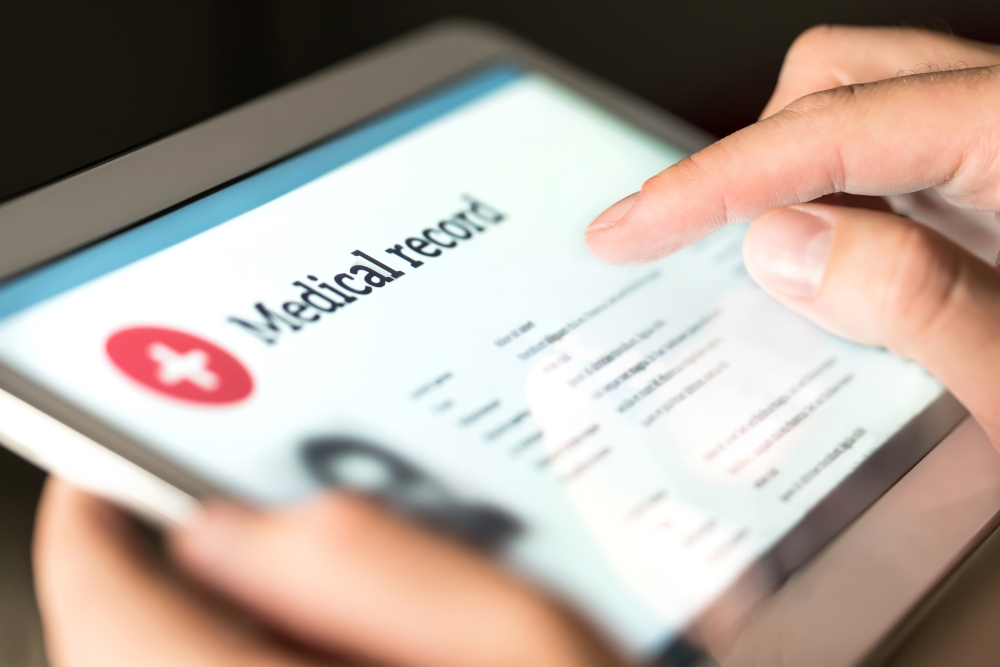
If you've been injured in a car crash, one of the most important things you can do is gather strong medical documentation after the accident. This paperwork can make or break your personal injury claim, especially if the insurance company tries to downplay your injuries or shift the blame.
In this blog, we’ll explain why medical records matter, what kind of documentation you’ll need, and how to use them to support your case. Whether you’re dealing with a minor fender bender or a more serious collision, documentation creates a clear timeline and gives your case structure.
Why Medical Documentation Is So Important
After an accident, emotions run high. It's easy to overlook paperwork when you're dealing with pain, stress, and unexpected bills. But medical documentation after an accident serves as the official record of your injuries. Without it, the insurance company may argue that you weren’t hurt—or that your injuries weren’t related to the accident at all.
Here’s what thorough documentation can prove:
- The severity and scope of your injuries
- The treatments you’ve received and will need going forward
- How your injuries impact your daily life and ability to work
- The connection between the accident and your condition
- Your credibility and willingness to follow medical advice
Without this proof, your case rests on little more than your word—and unfortunately, that’s often not enough for insurance adjusters or courts. These documents show that you took your health seriously and followed through with proper care.
Similar Post: How Do You Get a Copy of the Crash Report for a New Jersey Car Accident?
Types of Medical Documentation You Should Keep
Not all medical paperwork is equally helpful. Some documents carry more weight than others when building a strong personal injury claim. Below are essential types of medical documentation after an accident that you or your attorney should gather:
Emergency Room Records
These documents show your immediate condition after the crash. They’re often used to demonstrate the urgency of care and to highlight early signs of injury.
Physician Notes and Treatment Plans
Doctor’s notes detail your diagnosis, pain levels, limitations, and prescribed treatments. These are vital when showing how the injury affects your everyday life.
Diagnostic Test Results
X-rays, MRIs, CT scans, and bloodwork provide concrete proof of internal injuries, broken bones, or other trauma. These records are particularly powerful because they provide objective proof of your injury. For example, an MRI can detect soft tissue injuries that aren’t visible in an X-ray, while CT scans can uncover signs of concussion or internal bleeding. These tests not only confirm that you were hurt—they also show the extent of your injuries, which is essential for valuing your claim.
Receipts and Bills
Keep all receipts for co-pays, prescriptions, and treatments. These help calculate financial damages and validate your out-of-pocket expenses.
Mental Health Records
If the accident affected your mental or emotional health, you may also want to include documentation from a therapist or psychologist. Anxiety, depression, PTSD, and sleep disturbances are common after traumatic crashes—and they’re compensable damages. Including this information strengthens your claim by showing that your situation isn’t just physical, but emotional too.
What Happens If You Delay Medical Treatment?
Delaying treatment can harm your health—and your personal injury case. Insurance companies often claim that waiting to see a doctor means your injuries weren’t serious. Gaps in treatment can also make it look like you failed to follow proper care.
Tips for Keeping Strong Medical Documentation After an Accident
Staying organized and proactive is key. Follow these simple tips to keep your medical documentation after an accident in top shape:
- Go to the doctor or ER immediately—even if you feel fine
- Follow all treatment plans and attend every appointment
- Ask for copies of all test results, bills, and doctor’s notes
- Keep a pain journal to track your symptoms and recovery
- Share everything with your attorney, including new developments
Each of these steps can go a long way in protecting your rights. A well-documented recovery timeline can also help you secure compensation for future treatment needs, emotional distress, and reduced quality of life. It also minimizes the chance of disputes or denials during settlement negotiations.
Similar Post: How Long Should You Wait Before Talking to the Other Driver’s Insurance Company?
FAQ: Medical Documentation After an Accident
Q: Can I still file a claim if I didn’t go to the doctor right away?
A: Yes, but it may be harder to prove your injuries were caused by the accident. The sooner you seek treatment, the stronger your case will be.
Q: What if my doctor didn’t document something I told them?
A: Let your doctor know right away and ask them to update your records. Always speak clearly about your symptoms during visits.
Q: Do I need medical records if the other driver was clearly at fault?
A: Yes. Fault doesn’t guarantee compensation—you still have to prove your injuries and how the accident affected you.
Q: How can I get copies of my medical records?
A: You can request copies directly from your healthcare provider. Most hospitals and doctors' offices have a medical records department that can help you get the documents you need.
Q: Should I give my medical records to the insurance company?
A: Only provide what’s necessary and through your attorney. Giving them unrestricted access could hurt your case.
Q: Can chiropractic or physical therapy records help my claim?
A: Yes. These records show ongoing treatment and pain management, which can support claims for long-term recovery or chronic pain.
In short, medical documentation after an accident protects your health, rights, and finances. Keep records and get legal help to use them effectively. Every detail you record helps create a clearer, stronger picture of your case. Proper documentation isn’t just helpful—it’s essential.
Let Camili & Capo Help You Collect Your Medical Records After an Injury in New Jersey
If you’ve been injured and need help managing your medical documentation after an accident, don’t wait. The team at Camili & Capo knows how to use these records to strengthen your claim.
Contact us today for a free consultation and focus on recovery while we handle the legal side. Every step you take now can protect your rights and your future. We represent clients in East Rutherford, Irvington, Hoboken, Rockaway, and throughout New Jersey.
Disclaimer: This blog is intended for informational purposes only and does not establish an attorney-client relationship. It should not be considered as legal advice. For personalized legal assistance, please consult our team directly.

